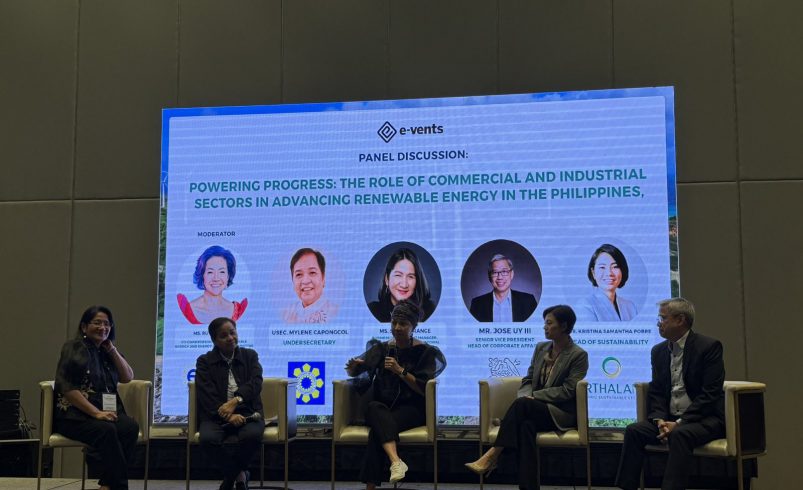DOE, Industry Leaders Push Rooftop Solar, New Models for C&I RE Adoption
- August 11, 2025
- 0

The commercial and industrial (C&I) sector can play a pivotal role in accelerating the Philippines’ shift to renewable energy (RE), according to panelists at the 3rd Renewable Energy Conference held from Aug 7 to 8 at the City of Dreams, Manila.
Moderated by Ms. Ruth Yu-Owen of the European Chamber of Commerce of the Philippines, the discussion explored how rooftop solar and other RE solutions can help businesses meet sustainability targets while supporting the country’s clean energy transition.
Department of Energy (DOE) Undersecretary Mylene Capongcol outlined ongoing efforts to expand RE adoption. These include streamlinin
Arthaland Corporation’s Head of Sustainability Architect Kristina Samantha Pobre said high-rise developments face limits on onsite RE generation due to roof space constraints, thus making GEOP a vital tool to source 100% renewable power. However, she noted the need for more supplier capacity and policy flexibility on replacement power requirements.
Nestlé Philippines Vice President Jose Uy III shared the company’s global net zero by 2050 commitment, which includes transitioning all local sites to renewable electricity. He recounted how DOE assistance enabled Nestlé to secure hydro power in Mindanao, helping meet its commitments and supporting financing for new RE projects.
Australian Embassy Senior Trade and Investment Commissioner Sheila Trance pointed to Australia’s rooftop solar expansion from 1 megawatt in 2010 to 3.4 gigawatts in 2023, driven by industry advocacy, supportive policies, and innovations like virtual power plants. She stressed the need for stronger collaboration between government and industry in the Philippines to replicate similar growth.
The panel cited key challenges, including regulatory barriers, technical limitations of building roofs, and capacity constraints from RE suppliers. Oppor
Panelists agreed that aligning C&I sustainability commitments with supply chain engagement, coupled with coordinated public and private sector action, could significantly accelerate the country’s renewable energy transition.
Follow Power Philippines on Facebook and LinkedIn or join our Viber community for more updates.